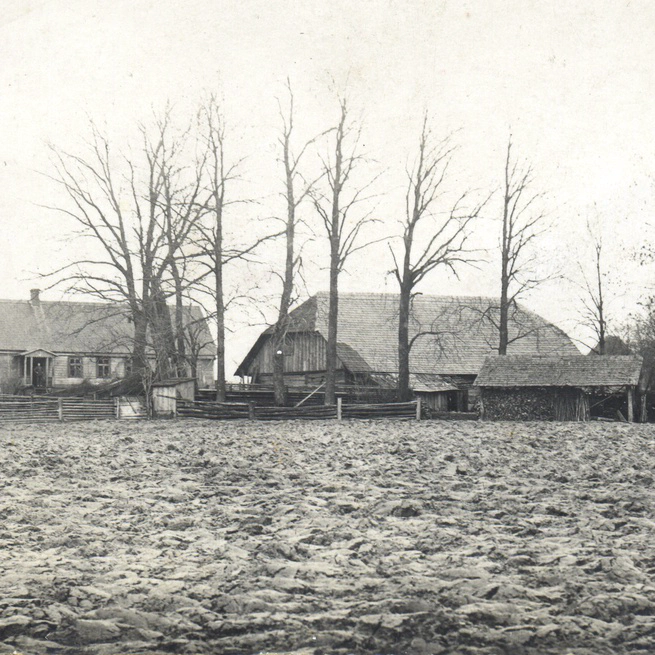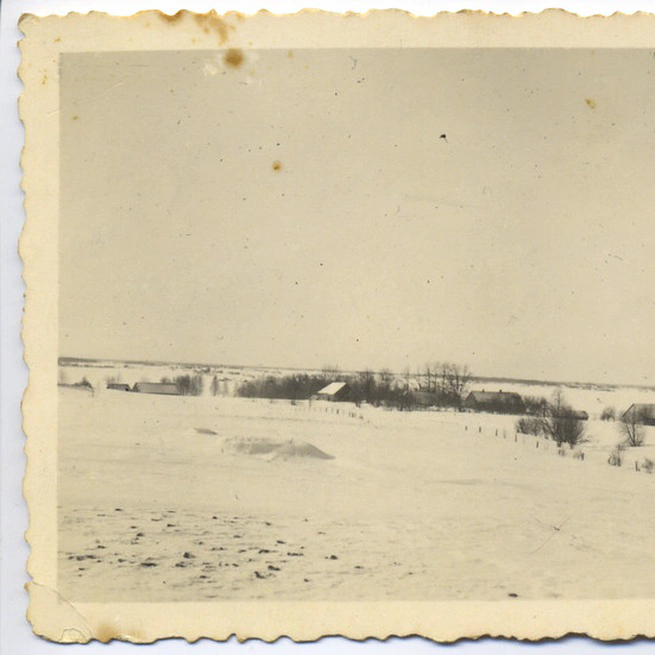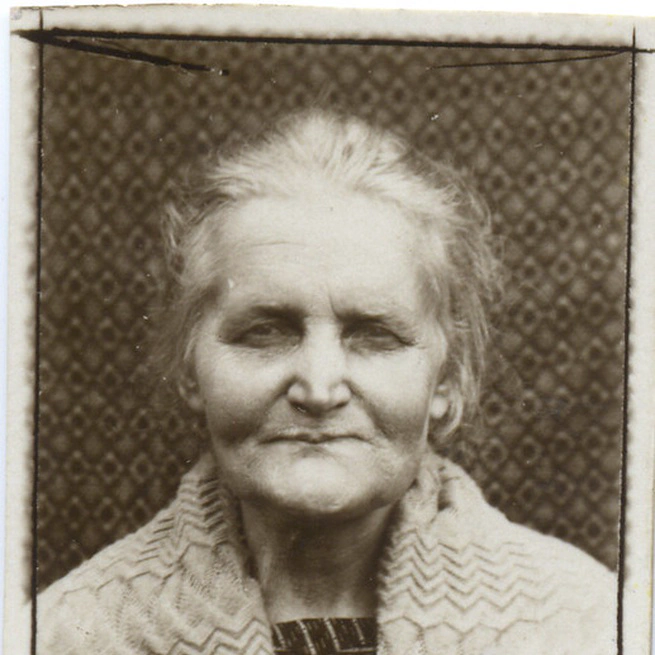
The years will pass; I will not be on this earth. My daughters, or maybe my grandchildren, may become interested in where their father, or grandfather, came from. Thus I am writing my life history.
Jan 14, 2010

As the war neared, father shut the shop. One sunny day at lunch-time father asked me to go and check on the shop to see if everything was in order – no breaking-in or stealing. I had a good look, nothing had been touched. I was just starting for home when I saw the German horse patrol with tall lances held aloft. In fright, I tried to hide behind the building but they had already seen me. They rode around the building from both sides. I was very frightened, I thought that this was my last hour because of the terrible stories that were told about the Germans. They asked – I still remember – “Russe” (“Russian?”) I just yelled that I didn’t understand. By this time the rest of the patrol had arrived; 15-20 men. “Aber here is eine kinder.” (“Here is only a child.”) They all laughed very loudly to see me so frightened with wet running down my legs. Then, the Germans, still laughing, rode away toward Kuldiga. I was very happy to be safe, having survived meeting the Germans face-to-face.
Jan 15, 2010

They started from the age of six with shepherding pigs in the yard or along the lanes where other animals were guided to the pastures. There was a fence on both sides so my sister Alvine and I just stood at each end of the lane. Time went very slowly, we had to do it for two hours. Next came the shepherding of cows and sheep. I don’t know if it was the same in other parts of Latvia as it was where we were. There were five farms with their buildings close together: Andulas, Digaini, Naglas, Vecvagari, and Zvirbuli. In the middle there was a road only for those properties with a fence along both sides so that the animals could graze along it and be directed to the pastures. The pastures started beyond Andulas. The pastures were common property from ancient times, so all the animals were herded together. The field was a square of about 1 ½ kilometres each side, mostly swampy with some water in places like small lakes. The grass was very coarse and the animals did not like it much. When the five farm animals were combined there were 50-60 cows and 200 sheep. Also, there were five shepherds, usually boys. That is where one learned how to get into trouble. There were some fights with the bigger boys teaching discipline to the younger, first-year beginners. It was the younger ones that got all the hard work – if the animals were going in the wrong direction they had to get them back. The older ones played cards or did their own thing. The younger ones couldn’t complain, it was like the Mafia of today. It was surprising how the animals, on returning to the farms in the evening, each knew to turn into their own yard. At first the calves and lambs would have to be guided. In the spring when the animals were first let out, the older cows, like people, chose a leader. The strongest took on the leadership and got respect. If the battle for leadership got dangerous, the shepherds had to separate them with a whip.
Jan 18, 2010
To get into the school you had to do a test in mathematics and the Latvian language. I passed this test and started fifth grade. I lived with my other uncle, Gusta, who had come from Russia. In Russia he had been the manager of an estate for a Russian boss. He was very nervous. In Aizpute he had opened a shop dealing leather for clog uppers or moccasins. In his free time he also made moccasins and clogs, which he sold in the shop. There was a large room with a stove, in which I cooked my own food. I remember cooking milk soup with dumplings, or a meat soup. Most of the time I boiled water to make herb tea, without sugar of course. The usual food was fried pork and rye bread. The food was brought from Digaini every two weeks. There was no electricity in my room. I would use a small petrol lamp with paper around it to reduce the glare. I did not even have a friend; I was very lonely.
Jan 19, 2010
As bookkeepers we were in a privileged position. On Friday afternoon we wrote our own leave passes and handed them to the adjutant to sign, most weekends we had two days free. The pass was meant to be for the local district only, but I used to go to my last work place – Prauliena. One of the bookkeepers had received a good bicycle from home, so at sunrise on Saturday mornings I used to set out on it. It took two hours to get to Prauliena. There I got dressed in my officer’s uniform and went to balls with my old girlfriends. On Sunday afternoon I set off for the return journey to Krustpils.
Jan 30, 2010
We decided then to go to Sweden, a local man with three teenage daughters was arranging it. They knew a fisherman, and we packed some food for a day or so and very little else and went to Mersrags. As we got there a storm came up, and the fisherman said it was too dangerous to go to sea in it. We waited a couple days, hiding in a hay loft, but it did not improve, so we went back home. All of our friends laughed and teased us - the big Swedish travellers! After this the Germans increased their patrols to stop people leaving for Sweden.
Feb 13, 2010